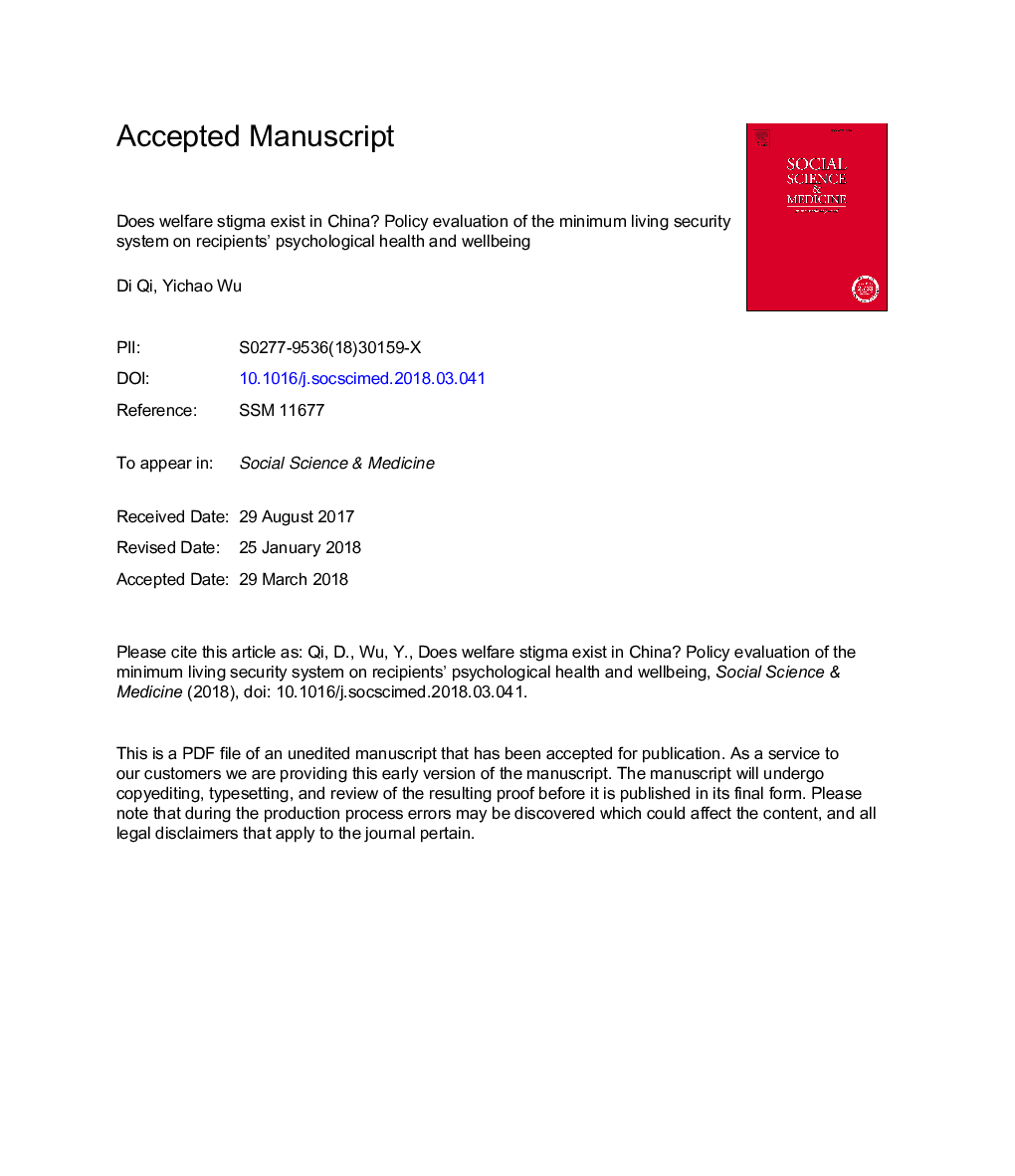| Article ID | Journal | Published Year | Pages | File Type |
|---|---|---|---|---|
| 7327941 | Social Science & Medicine | 2018 | 53 Pages |
Abstract
This paper analyzes the policy effects of China's largest social assistance program on the psychological health and wellbeing of the recipients by the regression discontinuity approach based on the 2014 China Family Panel Studies Survey (CFPS). By excluding other confounding factors and addressing the endogeneity problems, this paper shows that China's minimum living security system (MLSS) has produced significant welfare stigmatizing effects which have negatively influenced recipients' psychological health and wellbeing. The MLSS reduces recipients' self-satisfaction towards life, decreases the levels of happiness and self-confidence, and results in poorer interpersonal relationships and self-evaluations. It also increases the probabilities of feeling depressed, helpless and hopeless. The frequencies reporting having the difficulties of doing something are significantly higher among the MLSS recipients. Corresponding strategies and professional services are required for reducing the welfare stigmatizing effects on recipients' psychological health and wellbeing.
Related Topics
Health Sciences
Medicine and Dentistry
Public Health and Health Policy
Authors
Di Qi, Yichao Wu,
